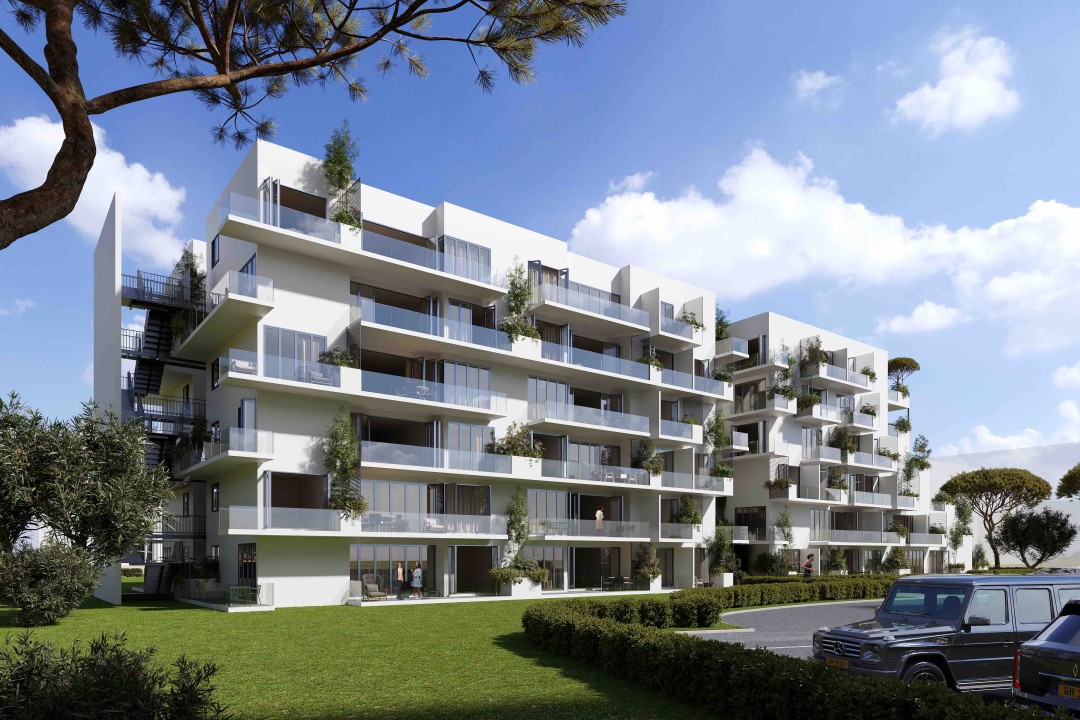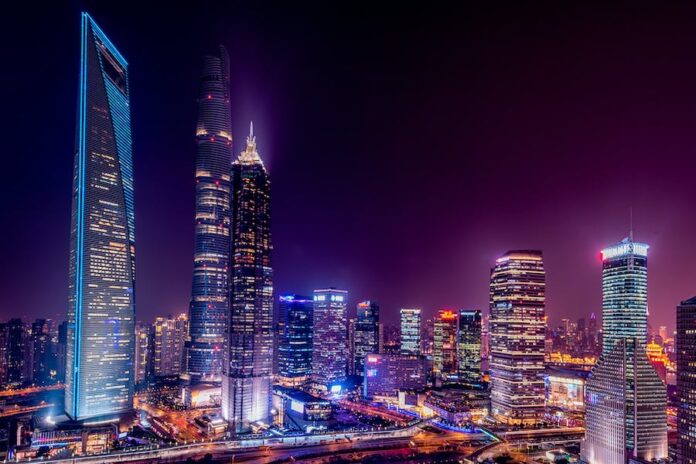Airbnb statistics by city reveal occupancy rates, average daily rates, and revenue insights. This data informs hosts on market performance and competition.
Understanding Airbnb statistics by city is crucial for hosts and real estate investors aiming to optimize their rental strategies. These statistics offer a detailed snapshot of local market dynamics, including the number of listings, average occupancy rates, pricing trends, and seasonal demand variations.
Access to this data empowers hosts to make informed decisions on pricing, availability, and marketing techniques to stand out in a crowded marketplace. With the vacation rental market constantly evolving, staying updated with the latest Airbnb trends at the city level can lead to more successful and profitable hosting experiences. This knowledge also benefits travelers by highlighting the most cost-effective and popular destinations.
The Airbnb Revolution
Airbnb has transformed how travelers find accommodations. From a simple idea of renting out an air mattress, it has sparked a worldwide phenomenon. Tourists now enjoy cozy homes away from home. Cities across the globe are feeling the impact. Let’s dive into the details.
Origin And Global Expansion
Airbnb’s journey began in 2008 in San Francisco. What started as a way to cover rent is now a global giant.
- Expanding to 100,000 cities
- Hosted over 800 million guests
Affordable travels and authentic experiences are key growth drivers.
Impact On Urban Accommodation
Airbnb has reshaped city stays. Traditional hotels face new competition.
- More choices for travelers
- Income for locals renting their spaces
Rent prices and neighborhood dynamics are changing. Residents see both benefits and challenges.
Datasets That Paint A Picture
Understanding the Airbnb landscape in any city involves more than just anecdotes. Datasets provide a clear snapshot of Airbnb’s footprint, shaping the narrative of its impact on urban areas.
Sources Of Airbnb Urban Data
Data tells the story of Airbnb’s integration into city life. Various sources offer deep insights into the platform’s operations.
- Local Government Reports: City housing agencies produce data on short-term rentals.
- Independent Researchers: They dissect trends, occupancy rates, and economic impact.
- Airbnb’s Datasets: Airbnb shares some data, offering raw figures directly from their service.
- Online Aggregators: Companies analyze and sell Airbnb performance data.
Each source presents unique perspectives, creating a comprehensive picture of Airbnb’s presence.
Metrics Of Significance
Metrics reveal the true dimensions of how Airbnb operates within cities. Not all metrics are created equal.
| Metric | Description |
|---|---|
| Number of Listings | Showcases the availability of accommodations. |
| Average Daily Rate | Indicates pricing trends across the city. |
| Occupancy Rates | Reflects the demand for rentals. |
| Revenue | Highlights economic influence on local markets. |
| Guest Demographics | Provides insights into who uses Airbnb in the city. |
By analyzing these metrics, stakeholders can make informed decisions regarding Airbnb’s role in urban environments.
Top Cities Riding The Airbnb Wave
Airbnb has transformed the way we travel, turning homes into hubs for vacationers and explorers alike. Certain cities around the globe have become hotbeds of activity for this innovative hospitality service. Let’s dive into the statistics that paint a picture of the most popular and up-and-coming destinations for Airbnb rentals.
Global Hotspots For Short-term Rentals
Travelers seek unique and authentic experiences, often in cities that combine rich culture with ample amenities. The following metropolises exhibit the highest demand in Airbnb listings.
- Paris, France: A tapestry of history, cuisine, and art.
- New York City, USA: The city that never sleeps, brimming with attractions.
- London, UK: A cosmopolitan hub with a blend of tradition and modernity.
Emerging Markets In The Sharing Economy
New frontrunners are joining the short-term rental revolution, offering fresh and exciting destinations. Here are the top rising stars in the Airbnb market.
- Osaka, Japan: Experiencing a surge in tourist attraction.
- Capetown, South Africa: Known for its stunning landscapes and vibrant culture.
- Lisbon, Portugal: A city of charming streets and a growing tech scene.
Economic Footprints In Metropolises
Cities pulse with economic activity, and Airbnb has become a significant part of this vibrancy. By enabling homeowners to rent out their spaces, Airbnb injects new streams of revenue directly into local economies. From huge bustling capitals to quaint tourist towns, the economic impact is both deep and wide-reaching. Let’s take a closer look at the specific financial contributions Airbnb brings to different cities worldwide.
Revenue Benchmarks Across Cities
Big cities see big money when it comes to Airbnb rentals. Data reveals that some cities outshine others in terms of revenue through Airbnb bookings. Consider these standout performers:
| City | Annual Airbnb Revenue |
|---|---|
| New York City | $1 Billion+ |
| London | $800 Million+ |
| Paris | $700 Million+ |
These numbers demonstrate the substantial monetary value Airbnb brings to city landscapes. Each resident listing their space adds to this potent mix.
Local Businesses And Ripple Effects
Think beyond the booking. Airbnb’s influence stretches to local businesses, creating a ripple effect. Guests flocking to cities don’t just need a place to stay; they dine, shop, and explore, leading to a surge in local spending.
- Dining out – Guests try local food spots, boosting restaurant sales.
- Shopping – Artisanal shops and malls enjoy increased patronage.
- Tourist attractions – Landmark sites and museums see more visitors.
- Transportation – Taxis and public transit systems experience higher demand.
This domino effect benefits a multitude of business sectors, underscoring Airbnb’s role as a catalyst in urban economic ecosystems.
Regulatory Responses To The Surge
Cities worldwide experience a boom in Airbnb listings. This growth prompts new rules from town halls.
Policies Governing Home-sharing
Rules vary based on city needs and housing markets. Some cities embrace home-sharing, seeing tourism boosts. Others limit rentals to curb property shortages. Cities often require hosts to register and pay taxes. Here are common policy types:
- Permits or Registration: Hosts must obtain a license or register their space.
- Occupancy limits: Regulations define how many guests can stay.
- Duration caps: Limits on how many days a year a property can be rented.
- Zoning laws: Determine where home-sharing is acceptable.
- Tax requirements: Hosts often pay a transient occupancy tax.
Enforcement And Its Challenges
Enforcement is tricky. Compliance depends on host honesty and city resources. Cities can struggle to track unregistered listings. Fines and penalties exist for rule breakers, but they must be enforced. Cities use tools for enforcement, such as:
- Data-sharing agreements
- Dedicated enforcement teams
- Software to monitor listings
Home-sharing platforms are also part of the solution. They can provide data to help cities monitor compliance. The challenge remains balancing the local economy, housing markets, and community needs.
Airbnb’s Social Influence
Airbnb’s Social Influence continues to reshape the way we travel and connect with cities around the globe. The platform doesn’t just offer a place to stay; it fosters community engagement and influences neighborhood dynamics. Understanding these impacts allows us to appreciate the broader narrative of Airbnb’s role in urban settings.
Community Engagement And Growth
The growth of Airbnb is a testament to its power in fostering strong community ties. Local hosts become ambassadors for their neighborhoods, sharing insider knowledge and cultural practices. This empowerment helps sustain and grow vibrant communities.
- Host meetups encourage knowledge exchange.
- Local experiences drive cultural appreciation.
- Economic benefits spread within the community.
Challenges In Neighborhood Dynamics
While Airbnb spawns growth, it can also disrupt neighborhood dynamics. Some residents express concerns about the constant flux of visitors and the influence on local housing markets.
| Issues | Impact on Communities |
|---|---|
| Rising Rents | Locals face higher housing costs |
| Change in Community Fabric | Shift from long-term to short-term residents |
| Noise and Traffic | Altered daily life and environment |
Sustainability And Urban Planning
Airbnb’s rise in cities has sparked a debate on sustainability and urban planning. City officials, residents, and travelers all consider the impact of short-term rentals. This focus examines how cities balance tourism benefits and sustainability goals. It also addresses Airbnb’s impact on urban housing markets.
Balancing Tourism With Carbon Footprint
City tourism adds to local economies but can increase the carbon footprint. Short-term rentals through platforms like Airbnb often lead to higher energy consumption. This is due to the temporary nature of guests who might not prioritize energy savings. Cities and Airbnb hosts are now adopting greener practices to reduce this impact.
- Energy-efficient appliances in rental properties
- Recycling systems for waste generated by guests
- Green certifications for rental listings
These steps aid in maintaining the allure of city destinations. They also ensure tourism thrives without compromising environmental health.
Long-term Effects On Housing Markets
Airbnb’s popularity can pressure urban housing markets. It might limit housing options for long-term residents. Some cities witness rent increases and reduced availability of long-term rentals.
| City | Percentage of Airbnb Rentals | Impact |
|---|---|---|
| New York | 3% | Rent increase |
| San Francisco | 2% | Housing shortage |
| Barcelona | 4% | Neighborhood disruption |
To address these issues, some cities implement regulations:
- Restricting the number of days a property can be rented.
- Requiring hosts to register with the city.
- Enforcing taxes on short-term rentals.
These measures aim to preserve housing for locals. They balance the needs of tourists and residents.

Credit: news.airbnb.com
The Future Of Urban Airbnb Trends
Urban Airbnb usage is soaring, painting a vivid picture of the future. Patterns are changing. City travelers now seek unique experiences, shifting the market. Local governments adapt regulations frequently, molding the Airbnb landscape. In our dive into the future of urban Airbnb trends, we unearth pivotal data-driven insights. These insights are critical for hosts and guests alike to understand the evolving market.
Predictive Analytics And Market Potential
Predictive analytics is reshaping how hosts strategize. Big data helps to forecast demand in cities. This ensures maximized occupancy rates and competitive pricing.
- Seasonal trends dictate the ebb and flow of guest numbers.
- User behavior analytics provide insights on guest preferences.
- Market saturation levels assist in identifying areas with growth potential.
Understanding these elements helps hosts recognize where and when to invest in properties. The market teems with potential, but only data-driven decisions lead to true success.
Adapting To Post-pandemic Travel Preferences
Travel preferences have shifted significantly post-pandemic. Flexibility in stays and ‘workation’ trends lie at the heart of these changes.
Cities witness altered booking patterns. Travelers now prefer longer stays, blending work and vacation. This shifts demand from hotels to Airbnb’s, where home comforts and workspace amenities are at a premium.
- Enhanced cleaning protocols top the list for guest assurance.
- Remote work amenities become a decisive factor for long-term bookings.
- Local experiences are in demand, with guests seeking authenticity.
Hosts must adapt their offerings to meet these new demands. Revamping spaces to accommodate remote work setups and local experiences will define the successful Airbnb of tomorrow.
Crafting The Narrative
Welcome to the fascinating world of Airbnb statistics by city. We crafted a narrative woven with compelling numbers and trends. It showcases the impact of Airbnb on urban centers worldwide. As we dive into each city’s story, we unearth a treasure of data. It’s not just numbers. It’s the pulse of neighborhoods, the ebb and flow of tourism, and the economic ripples created by home-sharing platforms.
Data Visualization And Storytelling
Visuals often speak louder than words. Engaging charts and infographics bring Airbnb’s city data to life. They tell a story. A tale of peak seasons, favorite neighborhoods, and pricing trends. A snapshot of unique listings paints a colorful mosaic of each city. Users can quickly grasp the scale and specifics thanks to these visuals.
Educating Stakeholders Through Statistics
Facts and figures are tools for learning. We aim to enlighten city officials, hosts, and travelers alike. Tables showing the average occupancy rates, most popular amenities, and revenue statistics are essential. They inform policy-making, investment decisions, and travel plans. This statistical dissemination is vital for all. Stakeholders walk away with a clearer understanding of Airbnb’s role in their respective cities.
Let’s take a closer look:
- Occupancy Rates:
- Cities with the highest weekends and seasonal occupancy
- Low seasons and what they mean for local businesses
- Average Daily Rates:
- Comparing cost of stays across different neighborhoods
- Insights into the premium pricing periods
- Guest Preferences:
- Top amenities that make a listing stand out
- Types of properties most sought after by city visitors
| City | Occupancy Rate | Average Daily Rate |
|---|---|---|
| New York | 85% | $150 |
| Los Angeles | 80% | $130 |
| Paris | 90% | $200 |

Credit: www.linkedin.com
Credit: medium.com
Frequently Asked Questions On Airbnb Statistics By City
What Area Has The Highest Airbnb Occupancy Rate?
The highest Airbnb occupancy rates are typically in major tourist destinations and cities with frequent events. Due to seasonal and event-based fluctuations, pinpointing a single area with the highest rate is challenging.
What City Has The Most Airbnb Listings?
As of my last update, Paris boasts the highest number of Airbnb listings, outpacing other cities globally.
Where Can I Find Airbnb Stats?
You can find Airbnb stats on the Airbnb website under the “About Us” section, in industry reports, or by using analytics tools like AirDNA.
What Is A Good Occupancy Rate For Airbnb?
A good Airbnb occupancy rate typically ranges between 50-70%. Higher rates suggest strong demand and effective rental management.
What Are Top Airbnb Cities For Occupancy Rates?
Airbnb occupancy rates vary, with cities like Paris, New York, and Tokyo often leading due to their high tourist traffic and limited hotel space.
How Does Seasonality Affect Airbnb Bookings?
Seasonal trends significantly influence Airbnb bookings, with summer and major holidays typically seeing peak demand in most cities.
Conclusion
Understanding Airbnb statistics by city equips hosts and travelers alike with valuable insights. Such data helps in making informed decisions about lodging and investments. As urban landscapes and tourism dynamics evolve, so do the metrics. Keep abreast of these trends and let the numbers guide you to smarter choices in the ever-shifting world of travel accommodations.

